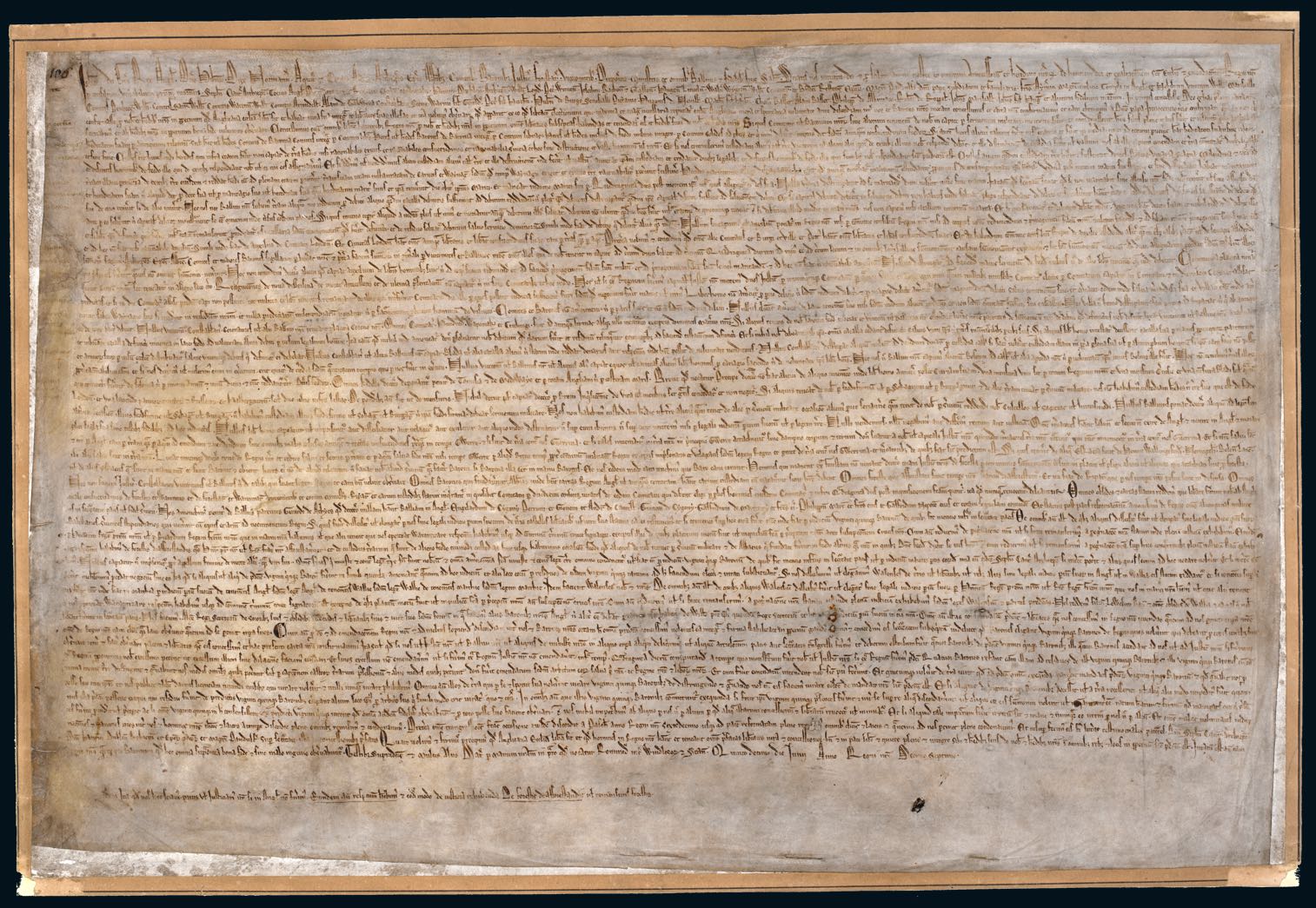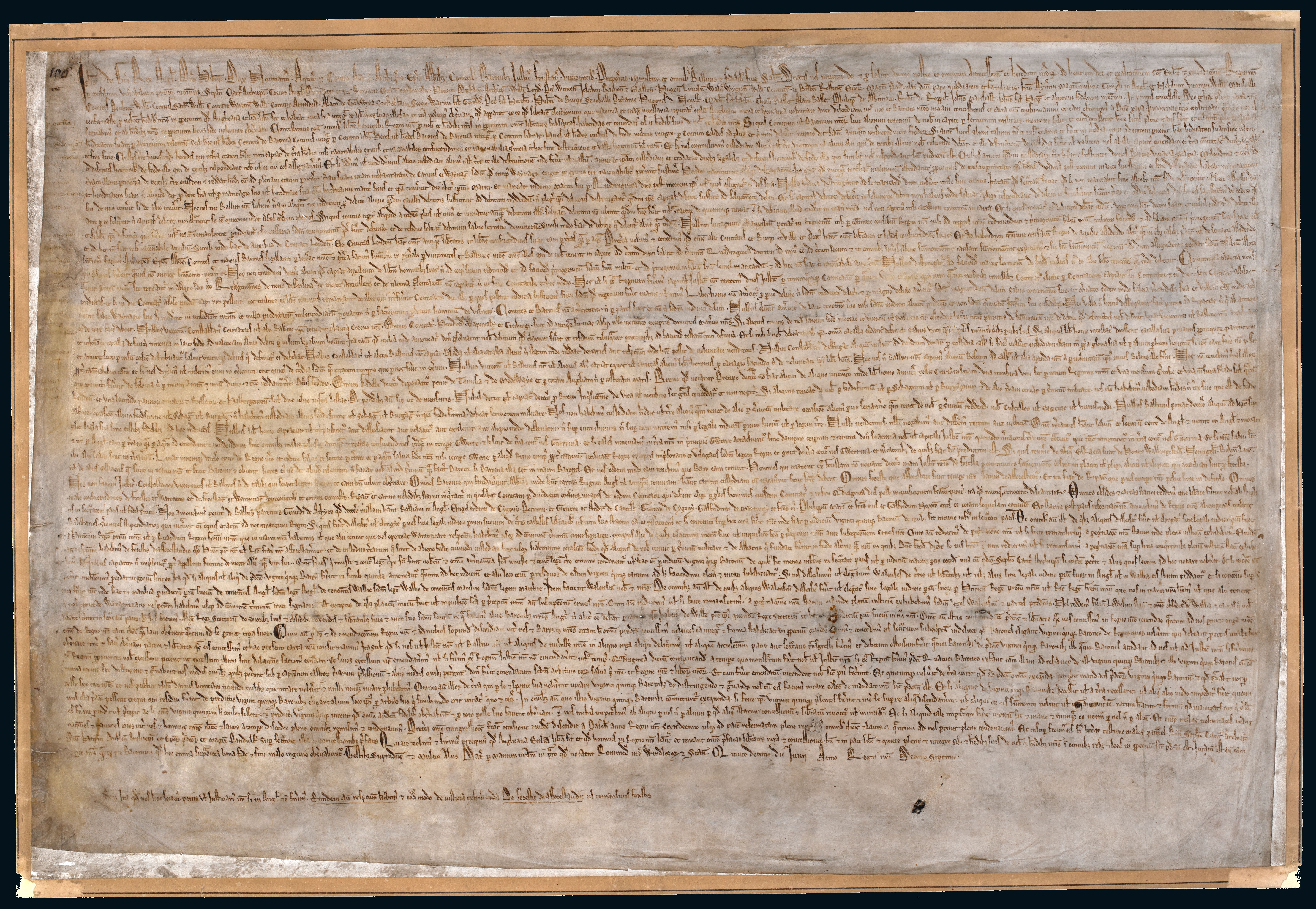
Omnes fines qui iniuste et contra legem terre facti sunt nobiscum et omnia amerciamenta facta iniuste et contra legem terre, omnino condonentur, vel fiat inde per iudicium viginti quinque baronum de quibus fit mencio inferius in securitate pacis, vel per iudicium maioris partis eorumdem, una cum predicto Stephano Cantuariensi Archiepiscop, si interesse poterit et aliis quos secum ad hoc vocare voluerit: Et si interesse non poterit, nihilominus procedat negotium sine eo, Ita quod, si aliquis vel aliqui de predictis viginti quinque baronibus fuerint in simili querela, amoveantur quantum ad hoc iudicium, et alii loco eorum per residuos de eisdem viginti quinque tantum ad hoc faciendum electi et iurati substituantur.
All fines that have been given to us unjustly and against the law of the land, and all fines that we have exacted unjustly, shall be entirely remitted or the matter decided by a majority judgement of the twenty-five barons referred to below in the clause for securing the peace together with Stephen, archbishop of Canterbury, if he can be present, and such others as he wishes to bring with him. If the archbishop cannot be present, proceedings shall continue without him, provided that if any of the twenty-five barons has been involved in a similar suit himself, his judgement shall be set aside, and someone else chosen and sworn in his place, as a substitute for the single occasion, by the rest of the twenty-five.
